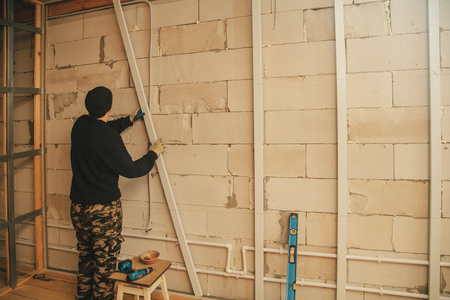Importance of Soundproofing in Garage Conversions
When considering a garage conversion into a bedroom or creative studio, soundproofing is not just an optional upgrade but an essential investment—especially in the UK’s bustling urban and suburban environments. With rising property values and the increasing trend towards maximising every square foot, many homeowners are transforming garages into functional living spaces. However, these conversions often face unique acoustic challenges due to thin walls, proximity to busy roads, and shared boundaries with neighbours. Effective soundproofing acts as a shield against intrusive noise from traffic, public transport, and day-to-day neighbourhood activity. More importantly, it ensures privacy and tranquillity within the new space, whether you’re creating a peaceful retreat for sleep or an inspiring environment for music, art, or remote work. In the UK context, where homes are typically closer together and noise regulations are stringent, proper soundproofing is fundamental—not just for comfort but also for compliance and future property value. By prioritising acoustic insulation during your garage conversion, you’ll create a sanctuary that meets both modern lifestyle needs and market expectations.
Understanding Types of Noise and Their Impact
When converting your garage into a peaceful bedroom or studio, recognising the various sources of noise is crucial for effective soundproofing. Different types of noise can have distinct effects on comfort, productivity, and overall well-being within your newly repurposed space. Below, we break down the most common noise sources found in British neighbourhoods and their potential impact.
Main Sources of Noise in UK Garage Conversions
| Noise Source | Typical Origin | Impact on Converted Spaces |
|---|---|---|
| Road Traffic | Main roads, local streets, motorways | Constant background hum, sudden loud vehicles disrupt sleep and focus |
| Neighbourhood Activity | Neighbours’ conversations, children playing, garden tools | Irregular bursts of sound reduce privacy and peace, especially in bedrooms or studios requiring concentration |
| Public Transport | Buses, trains, trams | Vibration and periodic rumbling can disturb rest or recording activities in studios |
| Weather & Environmental Sounds | Rainfall on roofs, wind, birdsong | Mild to moderate interference; heavy rain or storms may distract or prevent relaxation and work |
| Internal Household Noise | Kitchens, bathrooms, communal spaces next to conversion area | Noises from water pipes or footsteps above can interrupt sleep patterns and creative processes |
The Effects of Noise on Comfort and Productivity
Bedrooms: Night-time disturbances from traffic or neighbours can result in poor sleep quality, increased stress levels, and long-term health issues.
Studios: Both constant and sporadic noises interfere with audio recording quality and concentration, reducing overall productivity and creative output.
Key Consideration: Acoustic Privacy as an Investment Value Driver
A well-soundproofed garage conversion not only enhances personal comfort but also increases property value—a key consideration in the competitive UK housing market. Prioritising effective noise reduction strategies ensures your new space meets both lifestyle needs and investment goals.
![]()
3. Key Soundproofing Materials and Technologies
When transforming a garage into a tranquil bedroom or creative studio, the choice of soundproofing materials plays a pivotal role in ensuring lasting peace and comfort. The UK market offers an impressive range of solutions tailored to both performance and regulatory standards. Below, we highlight the leading options popular among homeowners and property developers alike.
Acoustic Panels: Modern Solutions for Urban Living
Acoustic panels have surged in popularity across the UK, especially in urban areas where traffic noise and neighbourly disturbances are common. These panels are designed to absorb sound waves, significantly reducing echo and reverberation within the converted space. Available in various finishes and thicknesses, they can be seamlessly integrated into bedrooms or studios for both function and style.
Seals and Acoustic Doors: Blocking Unwanted Gaps
One often overlooked aspect of soundproofing is the use of high-quality acoustic seals and specialist doors. In garage conversions, these technologies prevent sound leakage through door frames, windows, and ventilation gaps. Premium rubber seals and purpose-built acoustic doors are highly recommended for their effectiveness in maintaining privacy and quiet.
Insulation Options Favoured in the UK
Insulation forms the backbone of any robust soundproofing strategy. Mineral wool (such as Rockwool) is a top choice for British homes, prized for its superior acoustic performance and fire resistance. Alternatively, acoustic foam boards provide excellent thermal and sound insulation, making them ideal for walls, floors, and ceilings in garage conversions. Many UK installers also recommend multi-layered approaches that combine dense plasterboard with resilient channels to further enhance noise reduction.
Emerging Technologies: Investing for the Future
The UK property sector is increasingly adopting advanced solutions such as mass loaded vinyl (MLV) barriers and smart glazing for windows. These cutting-edge materials not only boost sound insulation but can also add value to your home—a key consideration for investors seeking long-term returns from their garage conversion projects.
4. Installation Tips: Best Practices for UK Homes
When it comes to soundproofing your garage conversion, a strategic approach is essential to ensure long-term comfort and value. Below are practical tips and best practices tailored to UK homes, helping you achieve truly peaceful bedrooms or studios.
Key Soundproofing Steps
- Plan Ahead: Before starting construction, evaluate potential noise sources such as nearby roads, neighbours, or even rainfall on garage roofs. Early identification lets you tailor your approach for maximum effectiveness.
- Select the Right Materials: In the UK climate, it’s vital to choose moisture-resistant acoustic insulation, like mineral wool or high-density foam boards. These materials both absorb sound and prevent dampness issues common in converted garages.
- Seal All Gaps: Use high-quality acoustic sealant around doors, windows, and floor edges. Even minor gaps can allow significant noise leakage.
- Install Acoustic Plasterboard: Replace standard plasterboard with an acoustic variant for walls and ceilings. This is especially effective in terraced or semi-detached properties where party wall sound transmission is a concern.
Common Pitfalls to Avoid
| Mistake | Why It Matters | How to Avoid |
|---|---|---|
| Neglecting Floor Soundproofing | Garage floors often transmit impact noise upwards into living spaces. | Add an acoustic underlay beneath carpet or laminate; consider floating floors for optimal results. |
| Poor Door & Window Choices | Standard internal doors and single-glazed windows offer little sound insulation. | Opt for solid-core doors and double- or triple-glazed units designed for acoustic performance. |
| Ignoring Ventilation Noise Paths | Poorly planned vents can become unintended sound highways. | Use acoustic trickle vents and ensure all ductwork is lined with sound-absorbing materials. |
Installation Order Matters
For the best outcome in UK homes, install acoustic insulation before electrical wiring and plumbing. This prevents service gaps that compromise your sound barrier. Always consult local building regulations—especially Part E (Resistance to the passage of sound)—to stay compliant and protect future resale value.
Pro Tip: Invest for Long-Term Value
A well-soundproofed garage conversion not only creates a serene living or working environment but also enhances market appeal when it’s time to sell. Don’t cut corners; partner with tradespeople experienced in UK-specific soundproofing methods for results that stand the test of time and add real investment value.
5. Value Addition and Energy Efficiency
Investing in high-quality soundproofing for your garage conversion brings more than just a quieter environment—it also adds significant value to your property. In the UK’s competitive housing market, homes that offer superior comfort and functionality stand out, particularly as potential buyers increasingly seek versatile spaces like peaceful bedrooms or creative studios. Effective soundproofing demonstrates a commitment to quality, making your conversion more attractive and potentially boosting resale value.
Beyond liveability, soundproofing solutions often contribute to improved energy efficiency—a growing priority for British homeowners conscious of both sustainability and running costs. Modern acoustic insulation materials not only block unwanted noise but also help retain heat during chilly British winters and keep interiors cooler during summer months. This dual benefit can lead to noticeable savings on energy bills, aligning with the government’s focus on greener homes and higher EPC ratings.
For investors and homeowners alike, these advantages are compelling. Quality soundproofing not only enhances daily living but represents a forward-thinking upgrade that supports long-term asset growth and operational savings—a smart move in today’s evolving property landscape.
6. Navigating UK Regulations and Planning Permissions
When soundproofing your garage conversion for bedrooms or studios, it’s vital to ensure you comply with all relevant UK building regulations and planning permissions. Local authorities place a strong emphasis on health, safety, and environmental standards, especially when a garage is being transformed into habitable space. Here’s how you can stay on the right side of the law while achieving excellent acoustic performance.
Understanding Building Regulations
Your first step should be to familiarise yourself with the latest Building Regulations, particularly Approved Document E, which covers resistance to the passage of sound. This regulation sets out minimum requirements for sound insulation between dwellings. Whether you’re creating a new bedroom or music studio, using compliant materials and installation techniques is crucial to passing final inspections and ensuring occupant comfort.
Securing Planning Permission
In many cases, converting a garage does not require full planning permission if the work is internal and does not alter the structure’s footprint. However, if your project involves significant external changes—such as new windows, doors, or extensions—or if your property is in a conservation area or a listed building, obtaining planning consent from your local council becomes essential. Always check with your local planning authority before commencing work to avoid costly setbacks.
Consulting Professionals
Given the complexity of regulations around soundproofing and conversions in the UK, consulting with architects or builders experienced in local compliance is highly recommended. These professionals can guide you through necessary applications, help source certified materials, and ensure that every stage of your project meets both legal and acoustic standards.
Staying Ahead of Compliance Issues
Maintain comprehensive records of materials used, building plans, and correspondence with authorities throughout your project. Upon completion, arrange for inspections as required by Building Control. Achieving certification not only offers peace of mind but also adds tangible value to your home—a key consideration for future resale in the competitive UK property market.
By taking these proactive steps, you’ll safeguard your investment, enjoy a truly peaceful space, and remain compliant with all UK laws governing garage conversions.


